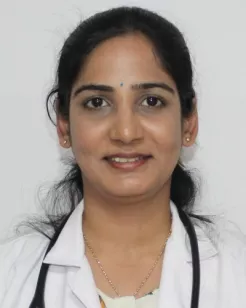The Department of General Medicine is an integral part of Ramesh Hospitals. It provides comprehensive medical care to patients above 4 years of age. It also offers outpatient, inpatient and 24/7 emergency care services with an emphasis on excellent doctor-patient communication. The outpatient department offers a wide range of medical services. It has experienced consultants and specialists who render expert care to patients with various health care problems like hypertension, diabetes mellitus, thyroid conditions and all kind of fevers & infectious diseases. The department strictly promotes the concept of preventive and proactive healthcare. Inpatients are given specialized medical attention to ensure minimal hospital stay, and stringent safety measures are observed in the patient care areas to prevent hospital-acquired infections. Multi-disciplinary in approach, the department provides efficient support services to other specialities by attending to cross-referrals and carrying out procedures like ascetic tapping, pleural tapping puncturing and Ascitic fluid aspiration. The outpatient department functions from 9am to 5 pm every day, except on Sundays. Our multidisciplinary team for internal medicine is highly qualified in the respective subspecialties and immensely committed towards delivering patient-centric health care. With mind the importance of each life, our specialists strive to deliver excellence to our patients.
FAQs
Want to find out more about the treatment? The answer to your questions can be found below.
What are the most common types of conditions that general physicians treat?
General physicians treat several common conditions, such as diabetes, indigestions, muscular pains, high blood pressure, migraines, bleeding or fractures, skin allergies, and viral infections. Our general physician treats these issues with effective medications and personalised treatment plans.
When should I consider seeing a general physician?
There are several health conditions that are considered to be treated by general physicians. These include heavy breathing, nausea, fainting, bleeding or deep cuts, vaccinations, viral infections, or regular health checkups. Our general physician remains well-prepared to treat these health problems any time.




